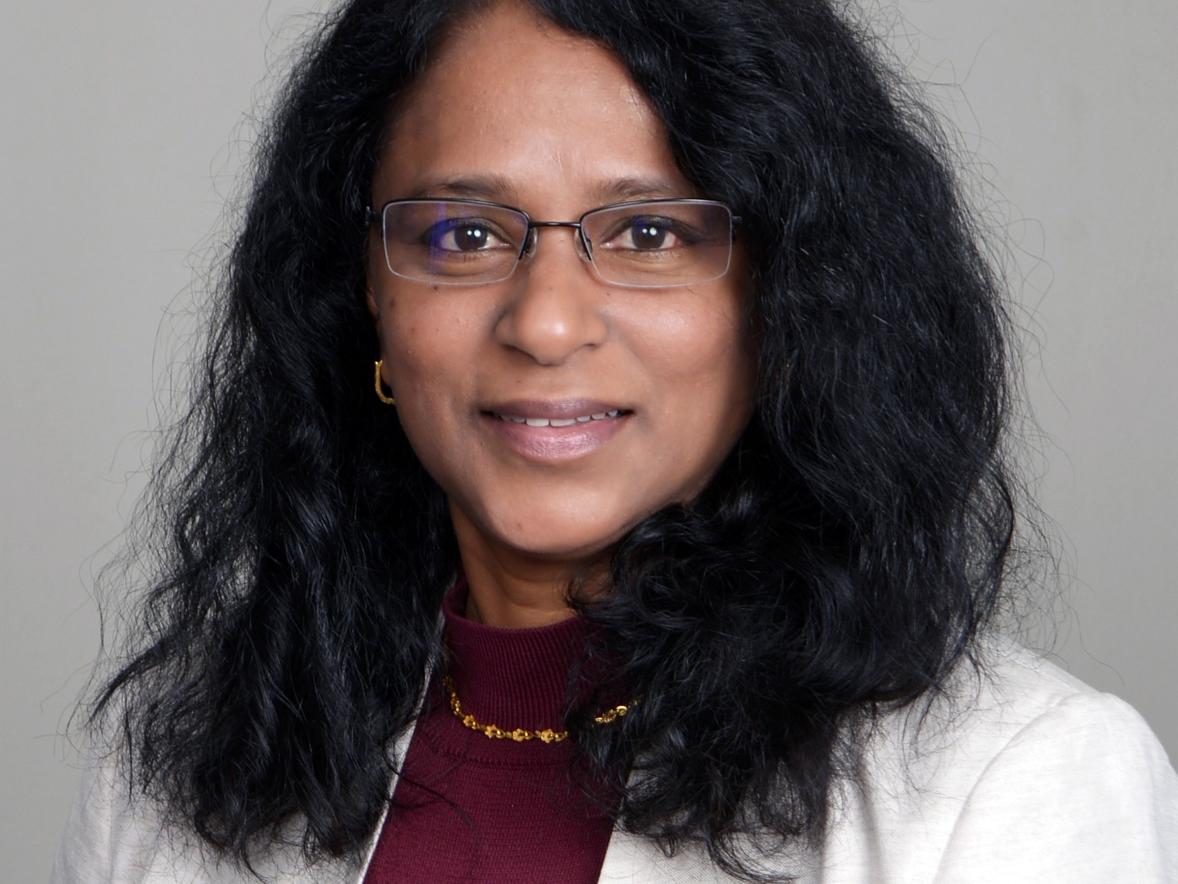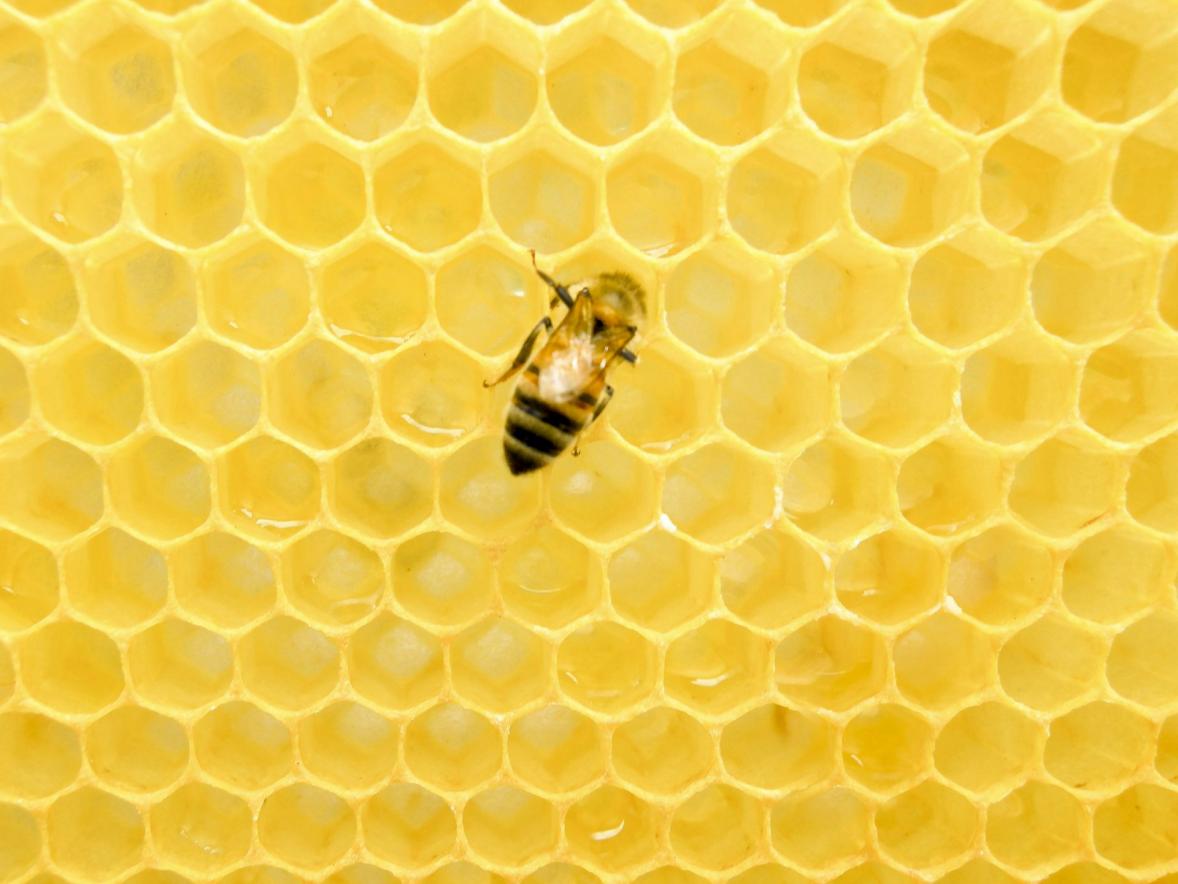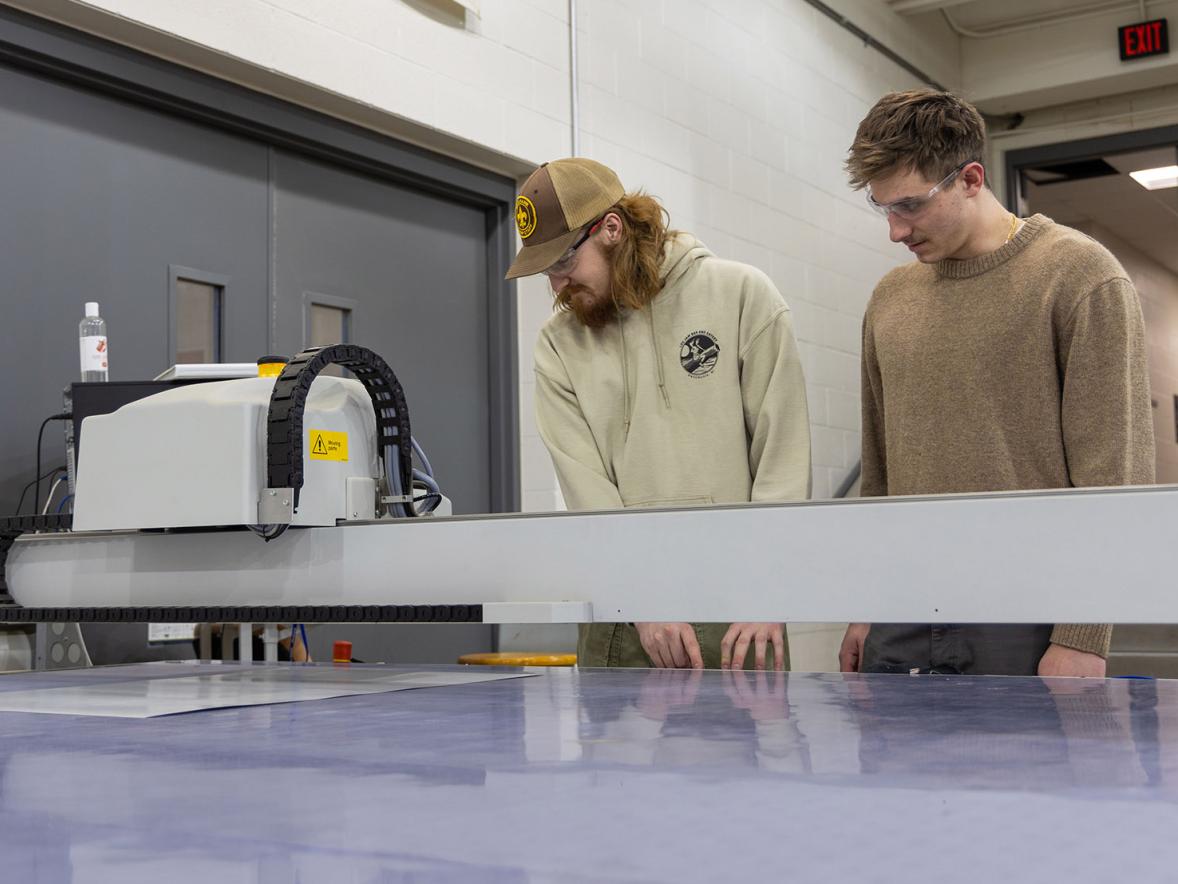University of Wisconsin-Stout Associate Professor Marlann Patterson envisions a world where citizen scientists use 3D printers to create their own vacuum systems for research.
She plans to build a 3D printer for around $300 and then use that printer to create molds to cast metal materials needed to create the vacuum systems.
Vacuum systems are used to create computer chips and other items where a clean environment is needed, Patterson said.
“The research I do is in very low pressure, clean environments,” Patterson said. “Everything with those is really expensive and cost-prohibitive. What if I can start making the molds so I can fabricate my own parts?”
Patterson, who teaches physics, was one of 13 faculty members recently named to receive 2018-19 Research Fellows awards from the university.
Depending on size, a vacuum system can cost up to $100,000, too much for many schools and researchers. “Vacuum technology has not been touched by cost-cutting like computers and technology have,” Patterson said.
Less expensive vacuum systems would allow university students more research opportunities. “I get students with all these ideas, and it is just too cost-prohibitive,” Patterson said.
If it’s possible to fabricate the parts, elementary and high schools also could have vacuum systems, Patterson said. “It could launch a whole area of research and make the technology more accessible. It can really revolutionize how we do it.”
Patterson, who has been at UW-Stout 10 years, has never built a 3D printer but has built vacuum systems. She is estimating it will take her a couple of months to build the printer. She also plans to try different kinds of filament in the printer to determine if there is potential for plastics to be recycled and reused in the printer.
A professor at Michigan Tech working with students developed open source plans for 3D printers. To see some open source hardware plans, visit here.
Research Fellows
With the award, Research Fellows are allowed to teach one fewer class for a semester.
The awards are sponsored by the Office of Research and Sponsored Programs, Center for Applied Ethics and the Discovery Center, Senate Office, Strategic Planning Group, chancellor and provost.
The other 2018-19 Research Fellows and their projects are:
- Jennifer Astwood, associate professor, College of Arts, Communications, Humanities and Social Sciences, digital fabrication
- Lopamudra Basu, professor, CACHSS, book project
- Devin Berg, associate professor, College of Science, Technology, Engineering, Mathematics and Management, use of a continuum manipulator in assistive technology
- Michael Bessert, professor, CSTEMM, rare fishes and keeping the stream flowing
- Min DeGruson, assistant professor, CSTEMM, vacuum packaging with biodegradable and antimicrobial multilayer films
- Melissa Emerson, assistant professor, CACHSS, legal aid in Wisconsin
- Eugen Andrei Ghenciu, associate professor, CSTEMM, symbolic dynamics, ergodic and coding theory
- Kristina Gorbatenko-Roth, professor, CEHHHS, evaluation of hair disease specialty clinics
- Andy Peng, assistant professor, CSTEMM, enabling condition-based maintenance for shipboard computing
- Wei Shi, associate professor, CSTEMM, robotic applications in health monitoring and assistive technologies
- Julie Watts, professor, CACHSS, using industry-focused research to recruit students and professionalize technical communicators
- Keith Wojciechowski, associate professor, CSTEMM, determining optimal parameters for adaptive solvers.







